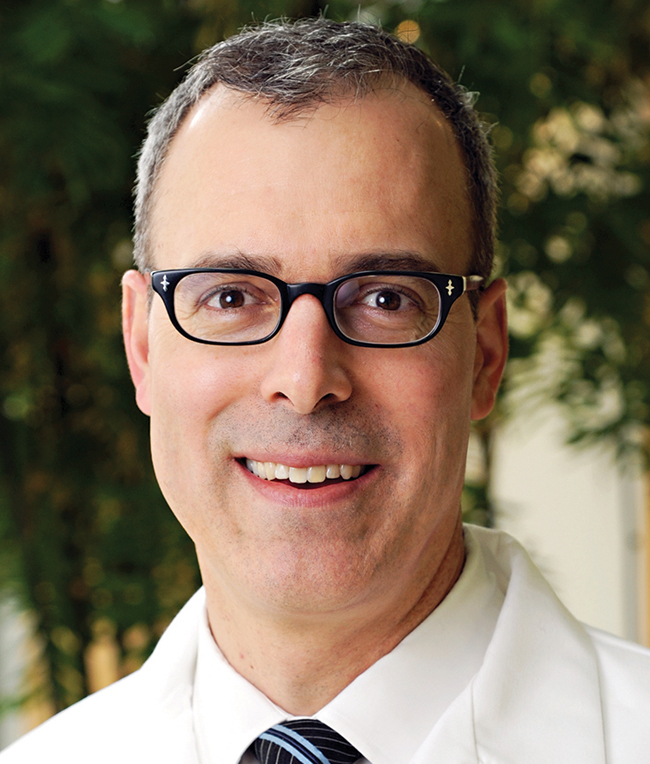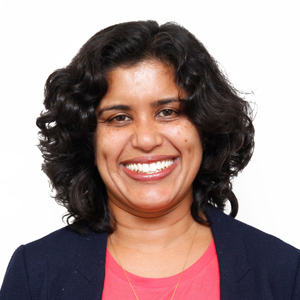Meet Eric Fearon
In January 2013, Eric Fearon at the University of Michigan Medical School joined the ranks of the associate editors at The Journal of Biological Chemistry. Fearon has a longstanding interest in the molecular mechanisms underlying colorectal cancer progression. American Society for Biochemistry and Molecular Biology science writer Rajendrani Mukhopadhyay spoke with Fearon to learn more about his research, career path and hobbies. The interview has been edited for length and clarity.
 Could you briefly explain what your research group works on?
Could you briefly explain what your research group works on?
A: My group works on trying to understand the molecular pathogenesis of colon and rectal cancers. We use a variety of approaches, predominantly now mouse models and some cell-culture-based work. The strategy is to understand what some of the genes that are recurrently mutated in human colorectal cancers do in terms of altering cell phenotypes of the epithelial cells. We study some of the common genes that are mutated, such as the adenomatous polyposis coli tumor suppressor, k-RAS, p53, PIK3CA and so forth. We’re trying to understand what the genes do individually and what they do when there are the kinds of combinations of mutations that one sees in primary human colon cancers. It takes us a little bit into the Wnt pathway, the PIK3CA pathway and the MAP kinase pathway and how these pathways talk to one another collectively in cells.
How did you become interested in this topic?
A: I’ve had a longstanding interest in the genetics of cancer from the time I was a graduate student at Johns Hopkins (University) in Bert Vogelstein’s lab. I worked on a variety of topics during my time there but spent a lot of time trying to understand how stepwise or accumulated genetic alterations might contribute to the initiation of colon adenomas and their progression to carcinoma. My interest goes back pretty much into the 1980s when I was a graduate student.
What happened in your life that made you choose science as a career?
A: I don’t know exactly if there is one event in anyone’s life that crystallizes the decision. But I was an undergraduate at Johns Hopkins in the biophysics department and thinking I might be interested in pursuing research. My undergraduate adviser, Skip Hunt, who was a neurobiologist in that department, encouraged me to do research. I chose Warner Love’s crystallography lab, which turned out to be a fabulous place to pursue research as an undergraduate. I found that I really enjoyed the technical aspects, working with my hands in the lab and thinking and reading about science. But I didn’t have the skill set to become a crystallographer at that point, even though I thought structural biology was really an amazing area of science! I continued to dabble a little bit during the day and on the weekends in that laboratory but also started doing some molecular genetics work with Haig Kazazian down at the medical school. I was working on a large deletion of the beta-globin locus in a family with a severe form of thalassemia. It was due to a deletion of not only the adult beta-globin gene and the delta-globin gene but also the fetal globin genes. That really got me excited about the potential power of molecular biology. When I searched around for laboratories to continue working in, I thought I could try to apply recombinant DNA techniques to understand some of the genetic lesions that might be present in human cancer cells. That steered me to the Vogelstein lab. So my interest in science originated pretty early on in my sophomore year of college. I thought science was really amazing thing — you could get an opportunity to pursue these fundamental questions of biology and maybe even earn a living at it!
Did you grow up in Baltimore?
A: No, I grew up in what, by most standards, would be viewed as a small town. I grew up in a town in Maine called Farmington, which is about 45 miles or so from the New Hampshire border and about 65 miles from the Quebec border. It was a great place to grow up, because you got to experience, as people in Maine say, all four seasons!
What does it mean to you on a personal level to be an associate editor of the JBC?
A: I find it a great privilege and an honor to be invited. The people who’ve served on the editorial board at the JBC and continue to serve are among, from my point of view, some of the most outstanding people in biological science. It was a great honor to be an editorial board member for five years or so. When I was invited to be an associate editor, I readily accepted, because I thought it would be another way to think about science and try to contribute to the field. I find it fun because it is an opportunity to read papers pretty much from any area of biology. I really like reading about how other people are doing science, because it informs how I think about my own science.
Do you have any hobbies?
A: I’m really excited about coming into work every day, but I’m one of these people who like to have other hobbies outside the lab. I still cycle some. I don’t tend to ride to work. I tend to ride out on the road, sometimes early in the morning or on the weekends. I probably ride a little over 120 miles a week. Compared to most cyclists who cycle seriously, that’s only a middling interest. It’s a good chance to think about problems while you are out riding on your own. I play a little bit of golf, but I’m not very good at it. I have some dogs, which take up a lot of my time. I have two big rescue Weimaraners who are good guys. One is 9 ½ and the other is about 2 ½, so they are busy guys, as most Weimaraners are.
What advice would you give to younger scientists?
A: The one piece of advice that I got, and I still think it’s really true, is to read as many papers and to read as broadly as you can. It’s a way always to have potentially new insights into challenges you may be facing. It gives you a sense of how other people have come before you and how other people now are thinking about scientific problems — how they pursue them, write about them, synthesize the data and present it. That’s what’s fun about being a journal editor, because you get to do that pretty much every day.
Enjoy reading ASBMB Today?
Become a member to receive the print edition four times a year and the digital edition monthly.
Learn moreGet the latest from ASBMB Today
Enter your email address, and we’ll send you a weekly email with recent articles, interviews and more.
Latest in People
People highlights or most popular articles

Simcox wins SACNAS mentorship award
She was recognized for her sustained excellence in mentorship and was honored at SACNAS’ 2025 National Conference.

From humble beginnings to unlocking lysosomal secrets
Monther Abu–Remaileh will receive the ASBMB’s 2026 Walter A. Shaw Young Investigator Award in Lipid Research at the ASBMB Annual Meeting, March 7-10 in Washington, D.C.

Chemistry meets biology to thwart parasites
Margaret Phillips will receive the Alice and C. C. Wang Award in Molecular Parasitology at the ASBMB Annual Meeting, March 7-10 in Washington, D.C.

ASBMB announces 2026 JBC/Tabor awardees
The seven awardees are first authors of outstanding papers published in 2025 in the Journal of Biological Chemistry.

Decoding how bacteria flip host’s molecular switches
Kim Orth will receive the Earl and Thressa Stadtman Distinguished Scientists Award at the ASBMB Annual Meeting, March 7–10, just outside of Washington, D.C.

Thiam elected to EMBO
He was recognized during the EMBO Members’ Meeting in Heidelberg, Germany, in October.

